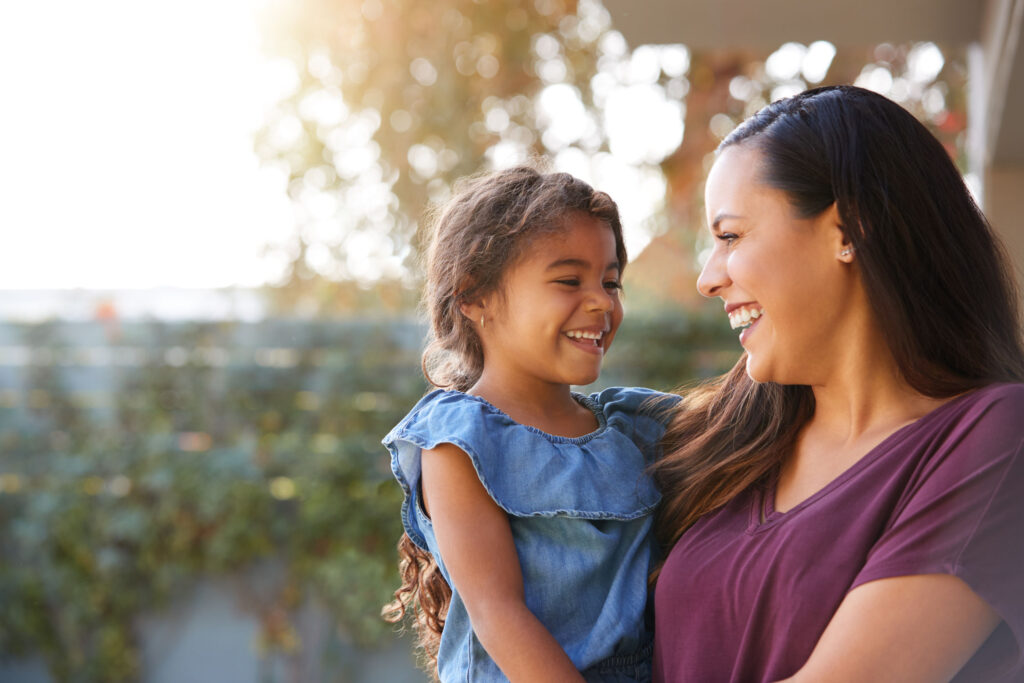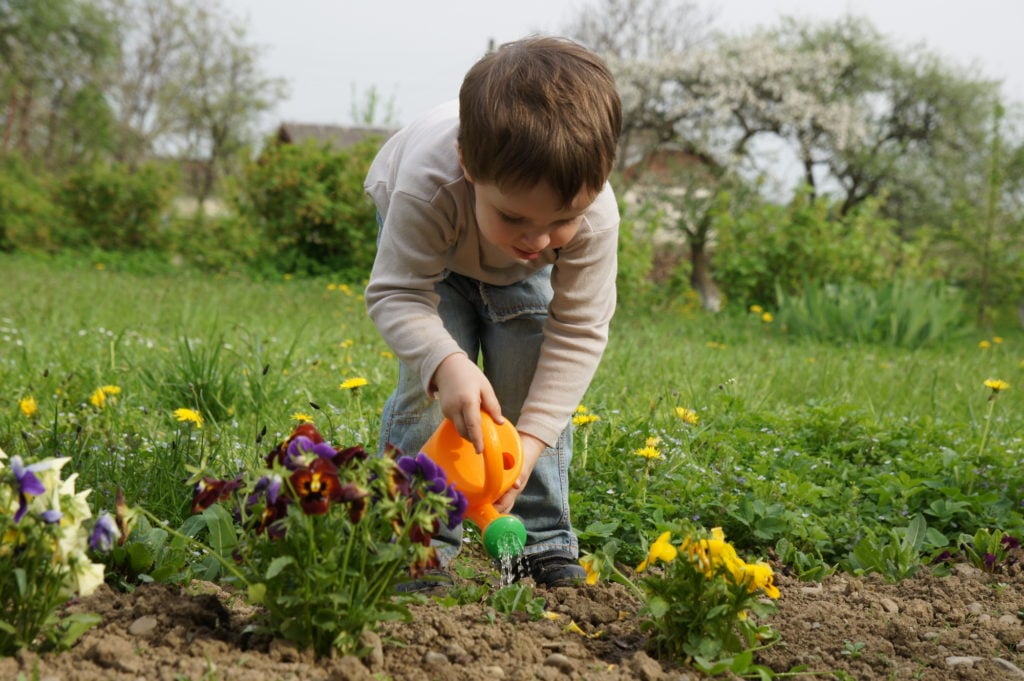How to Raise an Independent Child in the Age of Helicopter Parents
“Oh! I thought this child was alone!”
As my 4-year old walked ahead of me in the supermarket, I noticed an adult looking around for a parent. I picked up my pace and quickly informed the person that I was the child’s mother.

I hear this comment a lot – whether at the store, or because I let her climb a playground structure on her own, or because we let her run ahead of us at the airport. Actually, this statement blows my mind because if the people saying it were to look up, they would see me right there.
How to Raise an Independent Child
The expectations for today’s parents are overwhelming. No matter which parenting style you follow, you’re sure to receive constant feedback on it – from the news, social media, or out in public. We’re supposed to let our kids take risks, but we have to be right there so they never get hurt. In many cases, we’re expected to have a child who behaves even better than an adult.
Since Julie Lythcott-Haims wrote How to Raise an Adult, there has been a push toward anti-helicopter parenting. “Not only does overparenting hurt our children; it harms us, too. Parents today are scared,” she explains, “not to mention exhausted, anxious, and depressed.”
Working Against the Helicopter Parent Norm
So, how do we raise an independent child in a society that seems to expect us to hover like helicopter parents?
First let’s define the term helicopter parent. It’s a parent who constantly hovers over their kids without giving them the chance to learn how to do things on their own. In other words, a helicopter parent does everything for their child. It’s pretty easy to see the problem with helicopter parenting. Without opportunities to make decisions and make mistakes, our children will struggle to be independent.
But let’s not confuse helicopter parenting with attachment parenting. Attachment parenting is about creating a secure and strong bond with your child. It doesn’t mean we are constantly hovering. It means we are there for our child when she needs us, but we encourage her to trust herself enough to figure things out on her own.
The Key is Striking a Balance
Here are some ways to help you strike that fine balance between attachment parenting and helicopter parenting to help foster an independent child.
Remember that you know your child better than anyone. When you pay attention to your intuition, it will always guide you to parent your child in the best possible way and give them that safe haven attachment they crave.
Be Mindful of Your Child’s Age
Raising an independent child means you encourage them to do things on their own when they are ready and capable. It doesn’t mean you should leave your baby crying for hours so they can be more independent. There’s a time for everything, and it’s natural for a small child to want to be close to you.
The most important thing you can do for them, especially at this stage, is to be present and respond to their cues and needs. This helps your child become more secure and eventually, they will start doing things on their own. It is a beautiful thing to watch unfold!
How will you know when they’re ready? You just will. You will notice your child starts asking less from you, and doing more things on their own.
When this happens, it’s the perfect time to encourage them to do even things on their own. The best way to do this is to lead by example. Our kids learn so much by watching us. Add to that your guidance and your child will start to figure out how to do so many things on their own.

Encourage vs. Tell Them What To Do
One day my toddler asked, “Mama, can you draw a heart for me?”
I responded, “Why don’t you bring me another sheet of paper and I’ll show you how to make one.”
I drew a heart and explained what I was doing. Then, after many tries, she made her first heart. The look on her face when she figured it out was priceless!
You can apply this principle to pretty much anything your child wants to do. As they get older you give less instructions because you will know they can actually do what they want to accomplish.
Listen to Your Child
Every child develops at a different pace, which means it’s important to be a present parent and one who listens. You will know what your child is capable of doing if you pay close attention to them.
And remember, children are capable of learning things from a young age. For example, we taught both of our kids how to use a knife when they were toddlers. We talked about the process, we showed them how sharp a knife can be and eventually they were ready to use a knife on their own. Now my 7-year-old independent child cuts up fruit for her 4-year-old sister frequently.
Give Your Child Space
Practicing attachment parenting doesn’t mean you are supervising your child every minute of the day. It means you’re accessible, and you are their source of love. You can help when they need it, and you know when to back off.
Figuring out when to back off, especially if your child is a toddler, can be tricky. But if you see that every month, every year, your child is doing more and more things on their own, with less intervening from you, then you know you’re on the right track.
One thing I personally do with my kids is ask if they can try and do something on their own first. They have surprised me many times!
Welcome Mistakes
We all make mistakes, in fact, it’s one of the ways we learn. One story that stuck with me since I was a teenager is the one of Thomas Edison. It took him thousands of tries to figure out how to make a lightbulb and when asked about it, he said, “I haven’t failed — I’ve just found 10,000 that won’t work.”
There’s no such thing as failure, it’s simply attempts you make in order to reach your goal. When we approach new tasks or activities this way, your children become less scared because they know they will eventually figure it out. They also know they won’t get in trouble if they don’t get it right the first time.
This is a great way to raise our children – by encouraging them to experiment, to discover and even figure out (developmentally appropriate) things on their own. When a mistake happens, don’t make a big deal out of it because it is simply a natural part of the process.
An Independent Child Still Needs Your Love
The most important thing you can do for your child is to make sure they are loved. My mom always told me she’s my cushion and when I fall, she’s right here to help me get back up and remind me of how capable I am. A supportive and reassuring environment gives a child the framework they need to be connected, responsible, and willing to try new things without fear.

